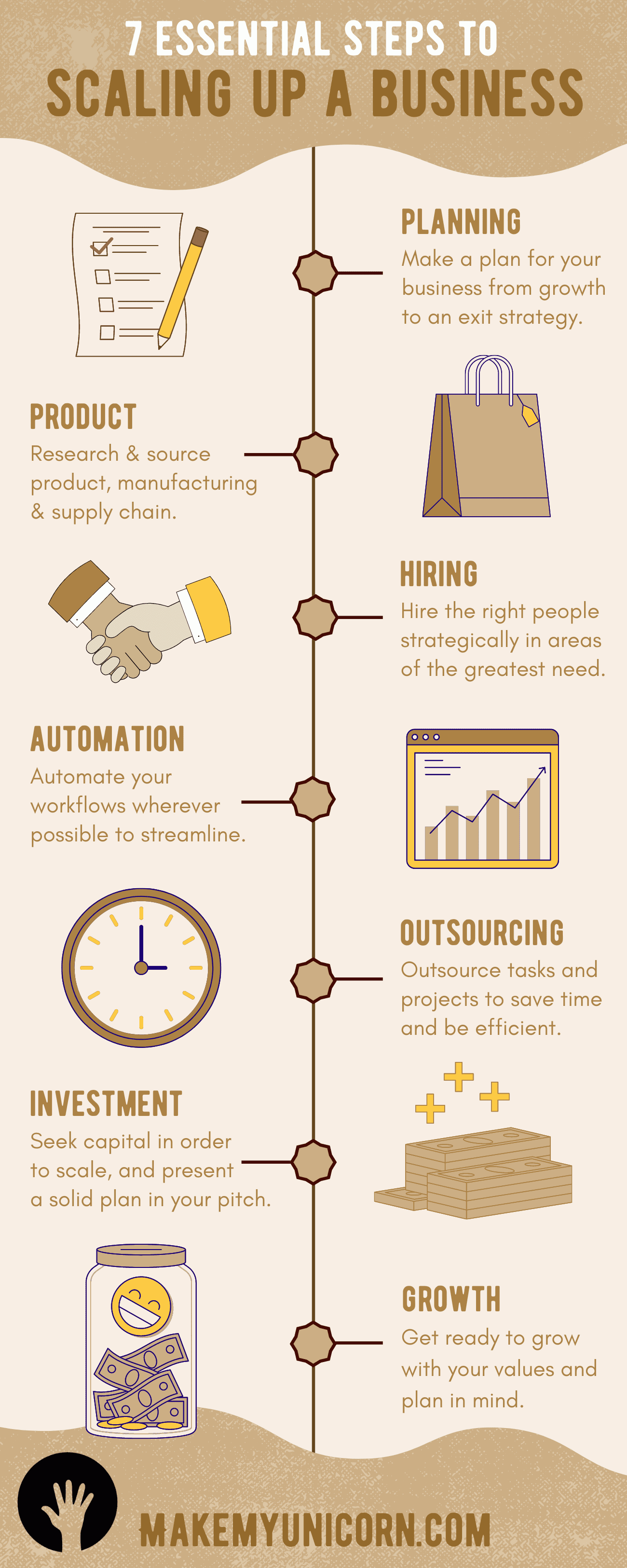
Scaling a business can be a challenging task, but it is necessary to take your business to the next level. It requires careful planning, strategic decision-making, and a willingness to take calculated risks. Here, we will explore seven essential steps that can help you scale your business successfully.
1. Planning
The first step in scaling your business is to have a well-thought-out plan. This plan should outline your business goals, the strategies you will use to achieve those goals, and the timeline for implementation. Your plan should also include an analysis of your market, target audience, and competition.
To create a successful plan, you need to assess your current position in the market and determine where you want to go. You should identify your strengths and weaknesses and develop strategies to address any challenges you may face. It is also essential to establish key performance indicators (KPIs) that will help you measure progress towards your goals.
Product
Your product is the backbone of your business, and it is crucial to ensure that it is high quality and meets the needs of your target audience. As you scale your business, you may need to refine or update your product to meet the changing needs of your customers.
To ensure that your product remains competitive and meets the needs of your customers, you need to conduct regular market research. This will help you identify any gaps in the market that your product could fill and help you make data-driven decisions about product development.
Hiring
As your business grows, you will need to hire more employees to help you manage the workload. Hiring the right people is essential for the success of your business, and it is crucial to have a clear hiring process in place.
Before you begin the hiring process, you should identify the roles and responsibilities you need to fill. You should also develop a job description that clearly outlines the qualifications and experience required for each role.
When hiring, you should look for candidates who have the skills and experience needed for the job, as well as a strong work ethic and a willingness to learn. You should also prioritize diversity and inclusion in your hiring process to ensure that you are building a team that reflects the diversity of your customer base.
Automation
Automation can help you scale your business by streamlining your operations and increasing efficiency. As your business grows, you may find that you are spending more time on administrative tasks that could be automated.
To identify areas where automation could be beneficial, you should conduct a thorough review of your business processes. This will help you identify any tasks that are repetitive or time-consuming and could be automated using technology.
Outsourcing
Outsourcing can also help you scale your business by allowing you to focus on your core competencies while delegating non-core tasks to external vendors. This can help you reduce costs and improve efficiency.
When outsourcing, it is essential to choose the right vendors who can provide high-quality services at a reasonable price. You should also establish clear expectations and a communication plan to ensure that the outsourcing relationship is successful.
Investment
Scaling your business will require investment, whether it is through loans, equity financing, or other sources of funding. To attract investors, you need to have a clear plan for growth and a solid financial forecast.
When seeking investment, it is essential to do your due diligence and identify potential investors who share your vision for the future of your business. You should also be prepared to negotiate the terms of the investment and be transparent about your financials and business strategy.
Growth
Finally, to scale your business successfully, you need to focus on growth. This requires a willingness to take calculated risks and make strategic decisions about the future of your business.
To achieve growth, you need to have a deep understanding of your market and customers and be willing to adapt to changing market conditions.
